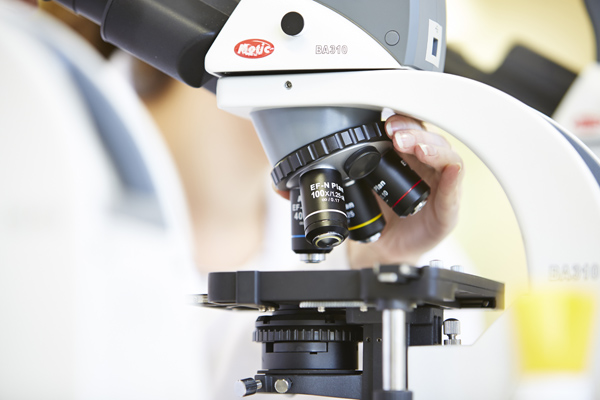Newsroom staff
14 November 2016: University of Canberra spin out company EpiAxis Therapeutics Pty Ltd (EpiAxis) has taken out the Startup Slam at BIO-Europe, a major business partnering event for the global biotechnology industry in Cologne, Germany.
EpiAxis, which was established by the University in February to lead ground-breaking research aiming to minimise the recurrence of breast cancer, was the only Australian finalist in the Startup Slam.
Acting CEO of EpiAxis, Dr Jeremy Chrisp presented a three-minute pitch about the company and its research, going up against 14 well-credentialed, international companies from the United States, Germany, the UK, Sweden and Israel.
The company’s work is based on research by University of Canberra Professor in Molecular and Cellular Biology Sudha Rao and her team, who have pioneered a less invasive biopsy method to help diagnose breast cancer and continue to work on treatments to end metastatic disease in cancer survivors.
Dr Rao said she was delighted with the result. “This has been a great opportunity to get people talking about our research and hopefully this will be a stepping stone to reach potential investors and partners in Europe and across the world,” Professor Rao said.
Dr Chrisp, who is also the investment director with ANU Connect Ventures, a financial backer of EpiAxis, impressed the judges including representatives of Johnson & Johnson Innovation, the Lead Discovery Center GmbH, and the Innovation Forum, an accelerator for science-based ventures.
As the winner, EpiAxis will receive mentorship from Johnson & Johnson Innovation and registration to BIO-Europe 2017.
Kurt Hertogs of Johnson & Johnson Innovation said the judging panel was impressed with the startups that took to the stage, adding that they were delighted to uncover fresh talent in the biotech industry.
“These emerging entrepreneurs took the opportunity to pitch to a room full of leaders who have the ability to help advance the most promising science into potential transformative healthcare solutions,” he said.



